Related Research Articles

Counterintelligence (counter-intelligence) or counterespionage (counter-espionage) is any activity aimed at protecting an agency's intelligence program from an opposition's intelligence service. It includes gathering information and conducting activities to prevent espionage, sabotage, assassinations or other intelligence activities conducted by, for, or on behalf of foreign powers, organizations or persons.
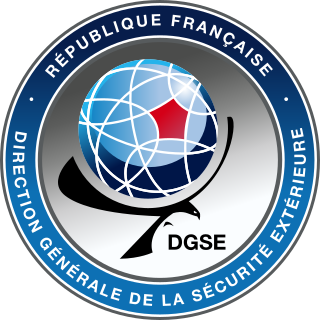
The Directorate-General for External Security is France's foreign intelligence agency, equivalent to the British MI6 and the American CIA, established on 2 April 1982. The DGSE safeguards French national security through intelligence gathering and conducting paramilitary and counterintelligence operations abroad, as well as economic espionage. It is headquartered in the 20th arrondissement of Paris.

John Mark Deutch is an American physical chemist and civil servant. He was the United States Deputy Secretary of Defense from 1994 to 1995 and Director of Central Intelligence (DCI) from May 10, 1995, until December 15, 1996. He is an emeritus Institute Professor at the Massachusetts Institute of Technology and serves on the boards of directors of Citigroup, Cummins, Raytheon, and Schlumberger Ltd. Deutch is also a member of the Trilateral Commission.
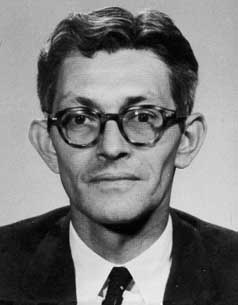
James Jesus Angleton was an American intelligence operative who served as chief of the counterintelligence department of the Central Intelligence Agency from 1954 to 1975. According to Director of Central Intelligence Richard Helms, Angleton was "recognized as the dominant counterintelligence figure in the non-communist world".

Stansfield Turner was an admiral in the United States Navy who served as President of the Naval War College (1972–1974), commander of the United States Second Fleet (1974–1975), Supreme Allied Commander NATO Southern Europe (1975–1977), and was Director of Central Intelligence (1977–1981) under the Carter administration. A graduate of Exeter College, Oxford and the United States Naval Academy, Turner served for more than 30 years in the Navy, commanding warships, a carrier group, and NATO's military forces in southern Europe, among other commands.

The First Main Directorateof the Committee for State Security under the USSR council of ministers was the organization responsible for foreign operations and intelligence activities by providing for the training and management of covert agents, intelligence collection administration, and the acquisition of foreign and domestic political, scientific and technical intelligence for the Soviet Union.
John Arthur Paisley was a former official of the Central Intelligence Agency.

The Directorate of Operations (DO), less formally called the Clandestine Service, is a component of the US Central Intelligence Agency. It was known as the Directorate of Plans from 1951 to 1973; as the Directorate of Operations from 1973 to 2005; and as the National Clandestine Service (NCS) from 2005 to 2015.
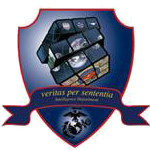
The Marine Corps Intelligence is the intelligence arm of the United States Marine Corps (USMC) and an element of the United States Intelligence Community. The Director of Intelligence supervises the Intelligence Department of HQMC and is responsible for policy, plans, programming, budgets, and staff supervision of Intelligence and supporting activities within the U.S. Marine Corps as well as supervising the Marine Corps Intelligence Activity (MCIA). The department supports the Commandant of the Marine Corps (CMC) in his role as a member of the Joint Chiefs of Staff (JCS), represents the service in Joint and Intelligence Community matters, and exercises supervision over the MCIA.

The National Counterintelligence and Security Center (NCSC) leads national counterintelligence (CI) for the United States government. It is part of the Office of the Director of National Intelligence (ODNI).
The counter-terrorism page primarily deals with special police or military organizations that carry out arrest or direct combat with terrorists.
National intelligence programs, and, by extension, the overall defenses of nations, are vulnerable to attack. It is the role of intelligence cycle security to protect the process embodied in the intelligence cycle, and that which it defends. A number of disciplines go into protecting the intelligence cycle. One of the challenges is there are a wide range of potential threats, so threat assessment, if complete, is a complex task. Governments try to protect three things:
Victor Leo Marchetti Jr. was a special assistant to the Deputy Director of the Central Intelligence Agency who later became a prominent critic of the United States Intelligence Community and the Israel lobby in the United States.
The Central Intelligence Agency (CIA), a United States intelligence agency that "provides objective intelligence on foreign countries", also informally referred to as the Agency. The CIA is part of the United States Intelligence Community, is organized into numerus divisions. The divisions include directors, deputy directors, and offices. The CIA board is made up of five distinct entitles called Directorates. The CIA is overseen by the Director of Central Intelligence. Under the Director of Central Intelligence is the Deputy Director of Central Intelligence. Under this the CIA is divided into four directorates. These directorates are as follows:
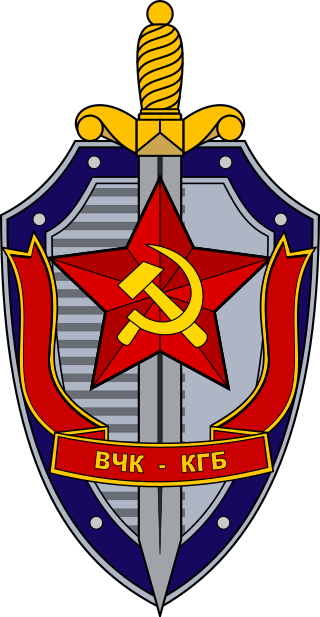
The Committee for State Security was the main security agency for the Soviet Union from 13 March 1954 until 3 December 1991. As a direct successor of preceding agencies such as the Cheka, GPU, OGPU, NKGB, NKVD and MGB, it was attached to the Council of Ministers. It was the chief government agency of "union-republican jurisdiction", carrying out internal security, foreign intelligence, counter-intelligence and secret police functions. Similar agencies operated in each of the republics of the Soviet Union aside from the Russian SFSR, where the KGB was headquartered, with many associated ministries, state committees and state commissions.

The Military Security Agency is a Serbian military security and counterintelligence agency of Serbia, organizational unit of the Ministry of Defence.

Francis Xavier Taylor was the Under Secretary of Homeland Security for Intelligence and Analysis at the U.S. Department of Homeland Security (DHS), nominated by President Obama in 2014. In that role, he provided the Secretary, DHS senior leadership, the DHS components, and state, local, tribal and private sector partners with homeland security intelligence and information they need to keep the country safe, secure and resilient. DHS Office of Intelligence and Analysis is a member of, and the Department’s liaison to, the U.S. Intelligence Community.
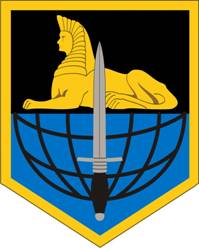
The 902nd Military Intelligence Group was a brigade-sized unit of the United States Army that operated under the command of the United States Army Intelligence and Security Command. Its primary focus was counterintelligence. The headquarters of the unit were located at Fort Meade, Maryland.

Rufus Lackland Taylor Jr. was an officer in the United States Navy. Eventually he became Director of the Office of Naval Intelligence and held the rank of Vice Admiral. In 1966 he was appointed as Deputy Director of the Defense Intelligence Agency (DIA), then shortly thereafter as Deputy Director of the CIA, where he served from 1966 to 1969.
Gardner Rugg "Gus" Hathaway was from 1985 to 1990 chief of the CIA's Counterintelligence Staff and its Counterintelligence Center successor.
References
- ↑ Nigel West (2007), Historical Dictionary of Cold War Counterintelligence , Scarecrow Press, p324
- ↑ "Counterintelligence at CIA: A Brief History". cia.gov. March 23, 2018. Archived from the original on March 28, 2018. Retrieved August 19, 2019.